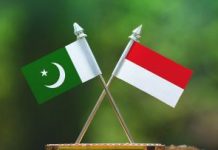Tashkent, Uzbekistan — On 9 December, a meeting on the issues of organization of clusters specializing in horticulture, improving the quality of harvesting and increasing the volume of export of fruits and vegetables was held under the chairmanship of the President of the Republic of Uzbekistan Shavkat Mirziyoyev.Strategy for development of the country’s agriculture for 2020-2030 was adopted by the Presidential Decree to increase labor productivity in the agricultural sector and crop productivity. It identifies priority measures for diversifying production, creating favorable climate for agribusiness, the chain of formation of high added value, and using advanced technologies.
Clusters organization in various sectors of agriculture gives good results. In particular, in cotton growing, this allowed the introduction of new technologies, increase productivity by 20-30 percent and material interest of producers. Cotton-textile clusters accounted for 73 percent of the grown cotton crop this year.
Great prospects in this regard also exist in the fruit and vegetable industry of the country, which are currently not being used to the full extent.
According to statistics, more than 21 million tons of fruits and vegetables are grown in Uzbekistan per year, of which only 1.5 million tons are exported. This is explained by the fact that the share of products in demand and able to compete in the foreign market is low in the export structure. There is a low yield of orchards and vineyards. For example, abroad, 70-100 tons of harvest are obtained per hectare of intensive orchards, and up to 130 tons for some types of fruits, and in Uzbekistan this figure is 10-30 tons, and 4-5 tons in traditional orchards and vineyards.
Insufficient attention to marketing and market research hinders the production of export-oriented products that meet the needs of potential customers. There is no interaction between dehkans, processing enterprises and exporters. Farmers place crops without careful planning and, as a result, find it difficult to sell crops, and exporters purchase products. This negatively affects the building of long-term partnership with foreign importers.
31 agrological centers for sorting, packaging, processing and exporting products have been organized in Uzbekistan. However, the lack of working capital and interruptions in supply force most of them to work only during the season. Their capacities are only 10-15 percent loaded.
The Head of the state noted that taking all this into account, it is necessary to establish a cluster system in horticulture. Attracting entrepreneurs with many years of experience in this field and infrastructure for the storage and processing of products should give a good result.
Responsible persons were instructed to legally regulate relations between the product procurer and the cluster enterprise, to ensure the interests of these parties.
It was emphasized that the main task of clusters should become the timely delivery of material resources and payment of advance funds, updating low-efficient orchards and vineyards, and increasing yields.
The importance of organizing short-term training courses for cluster initiators with involvement of foreign experts was emphasized, and the clusters, in turn, will have to conduct workshops for farmers on the use of advanced technologies, harvesting export-oriented products and increasing productivity. It was entrusted to organize corresponding departments in the higher education institutions of each region.
The President paid special attention to the issue of providing clusters with working capital. Measures were identified for financial support for such associations at the beginning of their activity, including at the expense of the State Fund for Supporting Entrepreneurship.
The importance of providing clusters of intensive orchards, vineyards and greenhouses to the population and entrepreneurs on preferential terms, as well as preferences on loans for the period before the ripening of the crop and the owners getting profit.
The Ministry of Agriculture, the Ministry of Investments and Foreign Trade were instructed to take measures for diversifying crops based on an in-depth analysis of the volume, types, quality and export potential of crops in each district.
The Head of the state noted that in this process the creation of high-yielding plantations on unused lands, on the site of unproductive orchards and vineyards, the cultivation and expansion of export of fruits and vegetables that meet the requirements of the foreign market are of paramount importance.
Information of responsible persons of the sphere and khokims of the regions was heard on the issues discussed at the meeting.











